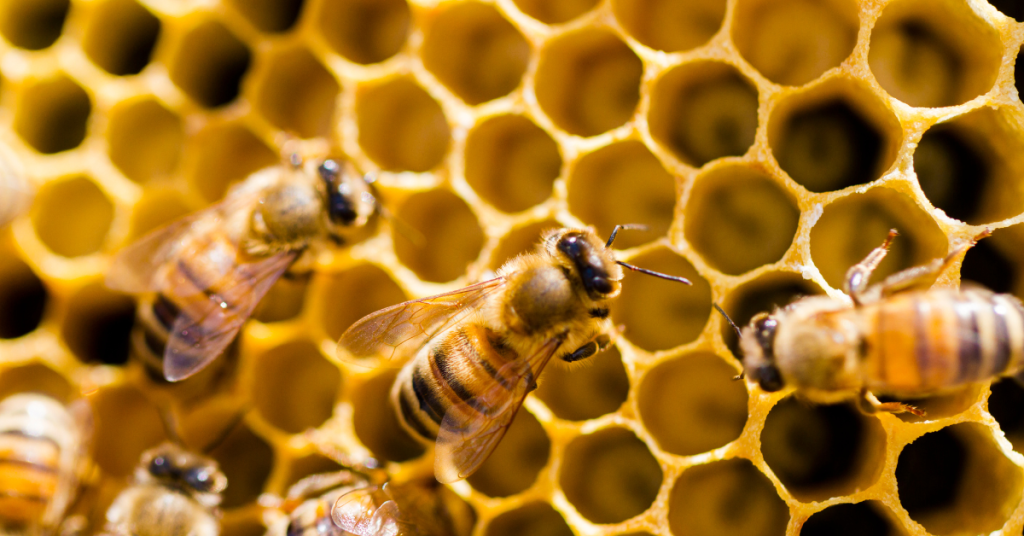The round table nwbka is a cornerstone in the beekeeping community, offering a space where beekeepers can gather, share experiences, and learn from one another. This initiative is particularly beneficial for those interested in sustainable beekeeping practices and those looking to network with like-minded individuals. Whether you’re a hobbyist or a seasoned beekeeper, the round table nwbka provides invaluable resources that enhance your understanding of beekeeping and its vital role in the ecosystem.
What Is Round Table NWBKA?
The round table nwbka is an informal yet vital platform designed to bring together beekeepers from diverse backgrounds. It serves as a space for collaboration, discussion, and learning, aiming to foster a sense of community and provide practical support to beekeepers. This initiative, led by the North West Beekeepers Association (NWBKA), is dedicated to promoting the well-being of bee populations and educating members on best practices in beekeeping.
At its core, the round table nwbka focuses on open dialogue. It hosts regular meetings where experienced beekeepers can share their knowledge, offer tips, and discuss challenges. These discussions cover a range of topics, from the latest trends in bee care to environmental factors affecting hive health. The round table nwbka is an essential gathering point for individuals interested in improving their beekeeping skills while contributing to the preservation of bee populations.
Key Benefits of Round Table NWBKA
Promoting Education and Knowledge Sharing
One of the most significant benefits of the round table nwbka is its focus on education. Beekeeping is a craft that requires a deep understanding of biology, ecology, and seasonal patterns. The round table nwbka serves as a hub for exchanging knowledge and ensuring that members are up-to-date on the latest beekeeping techniques.
The educational sessions hosted by round table nwbka include expert talks, workshops, and hands-on demonstrations. These events allow attendees to deepen their understanding of important subjects such as:
- Hive management
- Disease prevention
- Pollinator health
- Sustainable beekeeping practices
Whether you’re just starting with beekeeping or looking to refine your skills, the round table nwbka provides a wealth of resources to help you succeed.
Networking and Community Building
Networking is a fundamental aspect of the round table nwbka. It offers an opportunity for members to connect with others who share their passion for beekeeping. The events organized by round table nwbka are an excellent way for beginners to meet seasoned beekeepers, exchange tips, and build lasting relationships within the community.
The networking aspect of the round table nwbka also allows for the exchange of bees, beekeeping equipment, and resources. Often, seasoned beekeepers are willing to share their surplus equipment or even offer mentorship to new beekeepers. This sense of community is vital for creating a strong and supportive network for all those involved in the beekeeping world.
Environmental Advocacy and Bee Conservation
The round table nwbka isn’t just about beekeepers getting together to discuss hives—it’s also about advocating for the environment and the conservation of bee populations. Bees are essential pollinators that play a critical role in the global food chain. However, factors such as climate change, pesticides, and habitat loss have placed considerable stress on bee colonies.
Through the round table nwbka, members are actively involved in efforts to protect and conserve bee populations. From promoting the use of organic beekeeping methods to organizing local conservation initiatives, the round table nwbka works to ensure that the importance of bees is recognized and that actionable steps are taken to safeguard their future.
Events and Activities at Round Table NWBKA
Regular Meetups and Workshops
The round table nwbka hosts regular meetings and workshops that cover a wide range of topics related to beekeeping. These events are tailored to the needs of the participants, with sessions designed for both beginners and experienced beekeepers.
Some of the most popular events hosted by the round table nwbka include:
- Annual Beekeeping Conferences: These large-scale events bring together beekeeping experts from around the world to share knowledge and research on the latest developments in the field.
- Beekeeping Workshops: Hands-on workshops are conducted to help beekeepers improve their hive management skills, deal with common beekeeping challenges, and learn about new beekeeping equipment.
- Social Gatherings: Informal social events allow members to get to know each other and share their personal experiences in a relaxed setting.
The round table nwbka is an excellent venue for those looking to deepen their connection with the beekeeping community and stay informed about new industry developments.
Collaborative Beekeeping Projects
In addition to hosting regular meetings, the round table nwbka also encourages collaboration on community-based beekeeping projects. These projects are designed to have a positive impact on the local environment and promote bee conservation. Past initiatives have included:
- Urban Beekeeping Projects: Introducing beekeeping into urban environments to support pollinator populations in cities.
- Pollinator Education Campaigns: Engaging local schools and communities in activities that promote awareness of the importance of bees and pollination.
- Bee Habitat Restoration Projects: Working on restoring natural habitats for bees to ensure they have the resources they need to thrive.
By participating in these projects, members of the round table nwbka contribute to important environmental causes while simultaneously improving their beekeeping knowledge and experience.
The Future of Round Table NWBKA
Continuing Education and Innovation
The round table nwbka is committed to continually evolving in order to meet the needs of the beekeeping community. As the world of beekeeping advances, the round table nwbka will continue to adapt and integrate the latest scientific discoveries and technological innovations.
In the future, the round table nwbka aims to expand its educational offerings by incorporating new tools, techniques, and research findings into its programs. This focus on education ensures that beekeepers will always have access to the latest information and best practices.
Expanding Community Engagement
The round table nwbka is also focused on expanding its outreach to a broader audience. By fostering partnerships with environmental organizations, local governments, and businesses, the round table nwbka aims to create an even greater impact on bee conservation and environmental sustainability.
One of the key goals for the round table nwbka in the coming years is to enhance its community engagement efforts. This could include offering online resources, creating a stronger social media presence, and organizing more accessible events that cater to a diverse audience.
Conclusion: Round Table NWBKA and the Future of Beekeeping
The round table nwbka is more than just a meeting place—it’s a hub for education, community-building, and environmental advocacy. By fostering collaboration and providing a platform for beekeepers of all levels, it plays a vital role in the preservation and growth of the beekeeping community. Whether you’re looking to enhance your skills, contribute to bee conservation, or simply connect with others, the round table nwbka offers something for everyone. As beekeeping continues to evolve, the round table nwbka will remain at the forefront of this vital industry, helping to ensure that bees continue to thrive for generations to come.


